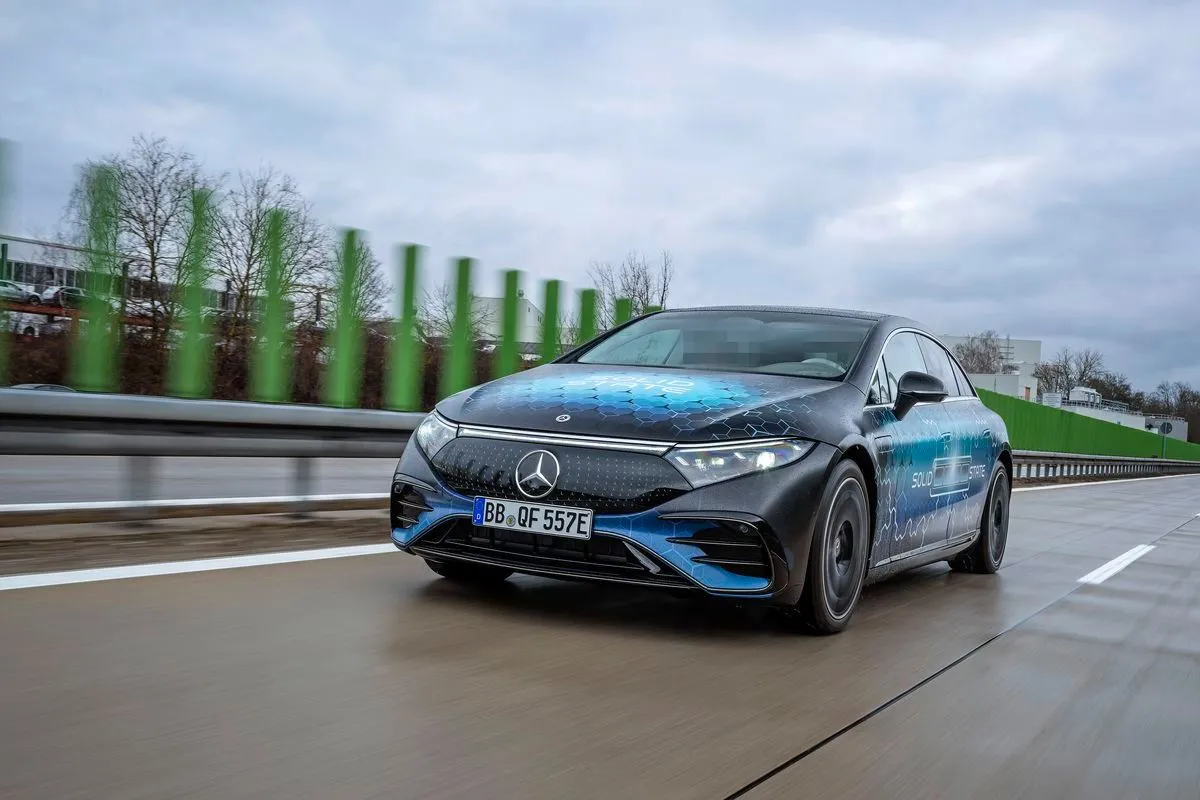Mercedes-Benz’s Electrifying Leap Into Solid-State Batteries

In a world that’s steadily switching to greener energy, Mercedes-Benz is shaking things up with plans to revolutionize electric cars by 2030. As the auto scene shifts toward cleaner alternatives, the idea of rolling out vehicles powered by solid-state batteries could really change the game—giving drivers and the planet a nice boost along the way.
Mercedes-Benz’s 2030 Game Plan
Mercedes-Benz is all in on changing the way we see electric mobility by 2030. They’re planning to launch a new car sporting solid-state battery technology before then. This isn’t just a small tweak—it’s a big switch-up in how electric vehicles run, promising upgrades in efficiency and performance. The journey kicks off with hands-on testing of prototype models planned for 2025, which sets the stage for ramping up production of these next-level batteries later in the decade.
Working with American firm Factorial, the move could mean up to a 25% jump in range over today’s lithium-ion batteries. For the high-end models, that’s eyeing a range of 621 miles on a single charge, which would put a whole new spin on what we expect from electric rides.
Tech Partnerships and New Developments
The teaming up of Mercedes-Benz and Factorial is at the heart of crafting this new battery tech. Solid-state batteries pack a lot of perks over the usual lithium-ion types—they’re lighter, hold more energy, and could really rev up overall vehicle performance. It’s a perfect recipe for carmakers looking to push the limits of what EVs can do.
But, of course, there are some hurdles. Making sure the battery materials last and keeping thermal control in check are top priorities when working with these new systems. Plus, the high cost of development and manufacturing might slow things down a bit as the industry works to get these batteries into mainstream production.
Facing Off With the Competition
Even as Mercedes-Benz charges ahead with its solid-state battery plans, it’s in a pretty competitive race. Other big names like BMW and several Chinese companies are also working on similar tech. BMW is set on rolling out its own solid-state battery vehicles around the same time as Mercedes-Benz. This head-to-head dynamic pushes everyone to innovate faster and more effectively.
With both sides chasing that magic 621-mile range per charge, it’s a real showdown to see who’ll set the bar for future electric vehicles. It’s an exciting time as these giants hustle to bring new standards to the EV market.
What It Means for Drivers and the Market
If Mercedes-Benz nails the rollout of their solid-state batteries on a large scale, it could be a real turning point for electric vehicles. Longer ranges and greener rides promise big perks for drivers, and could even speed up how quickly EVs become a regular sight on our roads. Markus Schäfer, head of development at Mercedes, put it this way: “Large-scale production is an absolute priority by the end of the decade.”
This push to scale up production shows just how committed Mercedes-Benz is to making advanced EV tech available without cutting corners on performance. As more drivers look for vehicles that offer longer trips on a single charge while being eco-friendly, the demand is set to rise even more.
Looking ahead to 2030, the challenge is clear, but so is the excitement. Mercedes-Benz is aiming to completely reshape electric mobility with smart partnerships and cutting-edge tech. While there are still plenty of questions about whether these ambitious goals will come to fruition, one thing’s for sure—the future of driving is in for a serious upgrade.